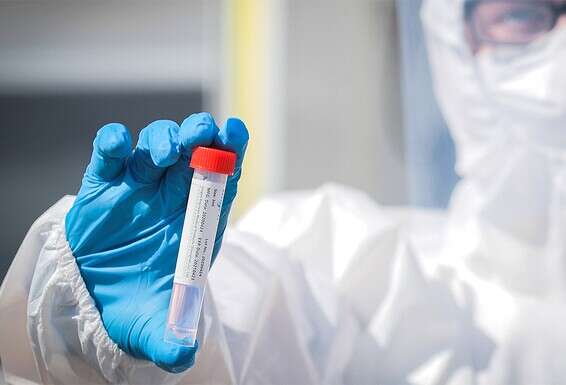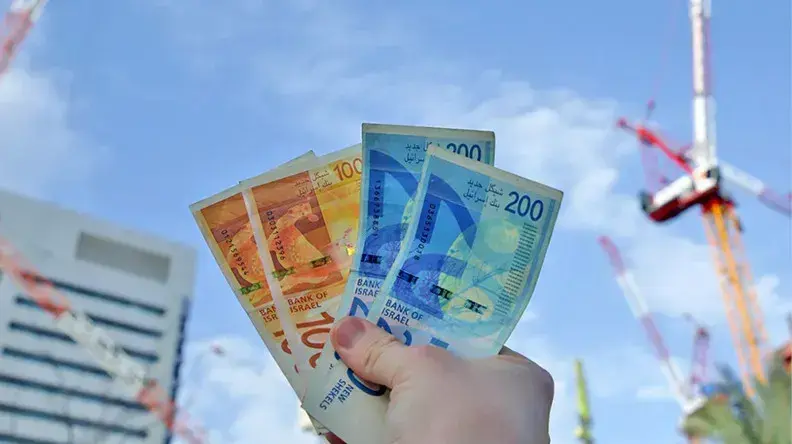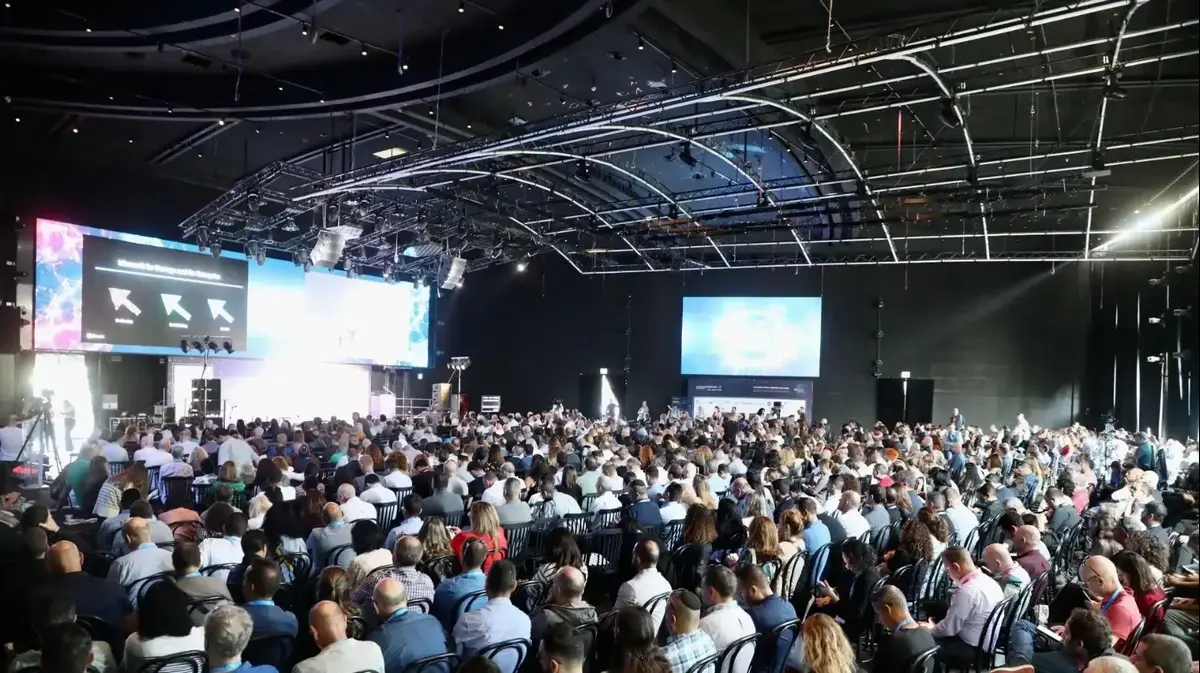"Blue Chair": New Section • This time, interview with Aaron Aaron, CEO of the Innovation Authority • On the Facebook boycott: "We are expected to see significant regulatory changes in the coming years aimed at responding appropriately to emerging technology"
Aaron Aaron
Photo:
Joshua Joseph
Aaron Aaron
CEO of the Innovation Authority
Served as the first CEO of Apple Israel, and formerly vice president of hardware technologies at Apple World. He holds a bachelor's degree in computer engineering and an MA in electrical engineering
Aharon Aharon, Israel records billions of dollars in billions, our great pride in being a startup nation. But now, in the face of the economy's re-closure, we seem to be failing in the small things, and it is our technological nation once again under restrictions that we have not been able to conduct a reasonable epidemiological investigation. Maybe we are not as technological and advanced as we are told?
"We are constantly moving in two directions: one and the necessary is the long-term strategy of Israeli innovation, which aims to prepare for future challenges. On the other, the movement is toward a methodological, systematic and structured system of activity with industry and companies in Israel. I do not criticize activity I do not know, I I can say that when you maintain a controlled, managed, continuous and coherent activity for all parties, the results can be predicted and managed - both in strategic decisions and in the execution process. "
You are known to be a tough nut to crack. Let's try from another direction: Google, Samsung, Apple and Microsoft are all investing in healthcare. Global spending on health is rising dramatically and is expected to reach $ 10 trillion by 2022. How did we reach the situation that in 2020, one virus will stop a whole world?
"What is interesting about all these companies? The relationship between the 'data' element, data, because they are about data, and health systems. There is a close relationship between using sophisticated information to optimize health systems. For Corona, we did not have enough information. A close link between the economy and health, and globally, we see a halt to the global economy, which is because we did not know much about the virus coming from China.
"The problem is to identify the virus first." Corona test // Photo: Oren Ben Hakon
"China has taken very aggressive actions, as is the case with the Chinese, such as complete closures on cities. Because there was not enough information, other places in the world have also done similar actions. Today we are at a more logical stage where one can examine what the health damage actually created and what prices are willing to pay Financially. "
When Google and Apple meet
What can we do to prevent a future situation where we are almost helpless in the face of such a threat? You invest heavily in the field of "bioconvergence", combining methods and disciplines from the fields of biology and engineering, which is expected to be one of the key technology waves ahead. How can this help us deal with current and future?
"First, this will be reflected in diagnostics, diagnostics. Bioconvergence will enable better and faster diagnostic levels than before. One of the fundamental problems we have today with the virus is to identify its existence first.
"I recently read to you, in Israel Today, that the adhesive chain is estimated to be five days. After five days, it is quite unnecessary to know what the adhesive chain is - because everyone glued it all on. If it could be done in 15 minutes then we would be in good shape More.
"Another area that Bioconvergence is relevant to is finding a vaccine more quickly, for example, using data-based methods, and using biological sensors to detect things. The third aspect of this area is the ability to monitor more continuously."
Here you become a little biased. Part of your job at Apple was developing the smart watch - the monitoring icon.
"True, one of my favorite things about monitoring is the clock, but it is certainly a significant area for our conversation. Being able to do continuous monitoring to find anomalies may be critical. That is, when a person suddenly feels different than usual measurable signs, such as an increase in heart rate or a pulse. "When such a person is tested and gets results within fifteen minutes, then the chain of infection is stopped at a relatively initial stage. If we identified a sick person within minutes, as mentioned, we would be in excellent shape."
With regard to the development of the vaccine and other measures to eradicate the epidemic, should some cooperation be expected from huge companies during such crises?
"I will give you an example of the Israeli analogy. When the Corona crisis broke out, one of the most beautiful things that happened in Israel was the ability to cooperate at an invisible level: the IDF's technology units collaborated with us, with MAPA, with the hospitals. Everyone collaborates on the same data , Which is a relatively unusual thing, and when there is no crisis, ego problems may make it difficult for these things to occur.
"Bad results over time." Amdocs offices in the CP
"We see very nice collaborations between countries and companies, and also among the technology companies themselves - not in secrets, but in using insights that stem from the crisis itself. You see many collaborations that were impossible before that - for example, in the US, between Google and Apple. People from both companies meet - the owners, the chairmen, the CEOs - they talk and find common solutions, that happens. "
"Spotting may be intrusive"
You mentioned processes that are accelerated due to the corona. By 2030, will we know how to deal with such an epidemic better?
"The wake-up call was not because of the virus but because of the economy. If you want to jump to 2030, most of the methods would make the diagnosis and processes for finding a vaccine much faster. Incidentally, this phenomenon of 'closing the world' is a problem of diagnostics, not a problem Of the vaccine. Either way, the corona has given an abnormal boost to all health systems. "
Beyond Corona, is there something bigger that we should be worried about these days in the tech-health arena?
"Yes. One danger is the existence of chronic diseases that are not going to go away. Another danger is the misuse of technology. As technology becomes more accessible, it may reach factors we did not want to visit. Don't get misinformation about a person. We don't want a very sick person to be considered healthy, and vice versa. "Turning" a lot of healthy people into patients employs the health care system and could cause it to collapse. "
One should not go as far as cyber attack districts. It is enough to see the false ISAs sent to civilians.
"Accurately accurate and accurate is intrusive and may violate the privacy of citizens. There is a balance between privacy through intrusive methods and accurate splicing. This is exactly the balance I deal with quite a bit between technology and regulation. A great example of this is the autonomous vehicle. At present, the level of development is such that there are quite a few companies that have already developed a vehicle that can move on Israeli roads. However, since the rest of the cars are not autonomous, and there are still many ethical and administrative issues due to regulation, we still do not see fully autonomous vehicles moving freely on the roads. Technology and regulation do not always live together, and we must strive to match them while constantly reviewing the service to the citizen. "
More about regulation - the consumer boycott of Facebook is expanding, against the backdrop of the social network's permissive policy of publishing hateful content or partisan and false content. Who will win this battle, Facebook or the advertisers? And what are the implications for the development of social networks and the Internet in general?
"Technological advancement 'runs' much faster than the regulation and adaptation of the technology to reality. We are expected to see significant regulatory changes in the coming years, aimed at responding to the evolving technology.
"I'm nationally concerned"
Another derivative of the Corona is the situation in high-tech. How far should the layoffs at Amdocs and the aerospace industry worry us?
"The high-tech industry is no different from all industries. As for Amdocs, its business results have not been good over time, it has many competitors and its market value is around services it provides. Its level of services has been impaired because its main customer is AT&T, and when its operations are impaired 7-6 percent, then Amdocs is also affected.
"Apple Watch" monitors heart rate
"In general, the high-tech sector saw a decline in demand, which was reflected in sales. According to our statistics, this is between 25 and 30 percent. This is a significant decrease. Financing, according to our models, is expected to decline by 30-25 percent throughout the year. On the other hand, there is Companies that have come up, such as Wicks or the Playtech company, because people sit at home and play.
"To cope, we have developed a program called the Fast Channel, designed for companies that have absorbed the decline in sales and the decline in funding, resulting in a survivorship problem. More than NIS 1 billion to help the economy. "
Do you think the bubble is about to blow up?
"The bubble is slowly bursting. We have even seen before the corona the diminishing investment in small and beginning companies. This means that in 5-4 years there will be fewer such companies. This is due to the fact that most investors go to more mature companies where the risk is lower. For example - the ripening time is about 15-10 years - people say, 'Why I invest now, I have better alternatives to money.' That's part of the bubble idealization.
Mark Zuckerberg // Photo: IP
"The corona has accelerated all these processes, and there is a significant paradigm shift that we are ignoring: the days before and those after the corona will be different. We already see it in the form of work from home, some companies have declared that they will not return to the office. Innovation if not hallway conversations? Without innovation resulting from walking and meeting in corridors and without informal work, such companies may be harmed. "
You sound worried.
"I'm always worried, that's my job, I'm nationally concerned. If there's a crisis and there is a paradigm shift, you have to adapt, and the challenge is how to do it. It's not a simple challenge. There are excellent companies that can close. It's a real crisis."
Giant companies are immune to it?
"To address the current crisis, Microsoft, in my opinion, has suffered a very minor blow to the crisis, because most of its services are cloud and Internet services. Google has certainly not suffered a crisis, the number of uses of its services has increased. Apple is selling tangible services and products. "The face of the products is hurt, but that's just speculation. Of course, the big companies have to wait for business results."
Do you see a situation where high-tech executives are looking for work in another field?
"What would a high-tech employee do? Work in a restaurant? In the leisure area, there are non-stop layoffs. So I think high-tech is still the best place to work at high wages. There are about 25,000 high-tech unemployed, and they're the first population The significant must return to high-tech, and fast. At the same time, those who did not work in high-tech should be trained and trained in a one-year or one-and-a-half-year plan, hoping that by the time the economy is balanced and they will integrate into the industry. To give a living allowance while at the same time training to enable people to integrate into high-tech. "
On the other side of Israeli high-tech, startups raised a whopping $ 2.3 billion in the second quarter, according to IVC data. This is the same amount as the corresponding quarter in 2019. Does that indicate resilience?
"If you look at software companies that in the past have recruited very nicely, and even now are recruiting very nicely, they are less susceptible to the crisis, and most deal with areas that the crisis has even contributed to. There is no reason not to raise money, because there is money. .
The state is doing enough?
"Enough is, of course, a relative issue, and it is never enough in any field. In crisis situations, the blanket is always short. The big advantage of the high-tech is that it is a growth engine. I mean, the one who gets the economy out of its crisis is the high-tech. Single, of course.
"Beyond that, you have to organize differently than you used to, and re-examine things. We see the buds of this organization, which is reflected in the kind of products that companies are developing and in forms of development. But the business has not yet been fully internalized. We must understand that the crisis is not going to go away anytime soon For a long time. "
For suggestions and comments: Ranp@israelhayom.co.il















